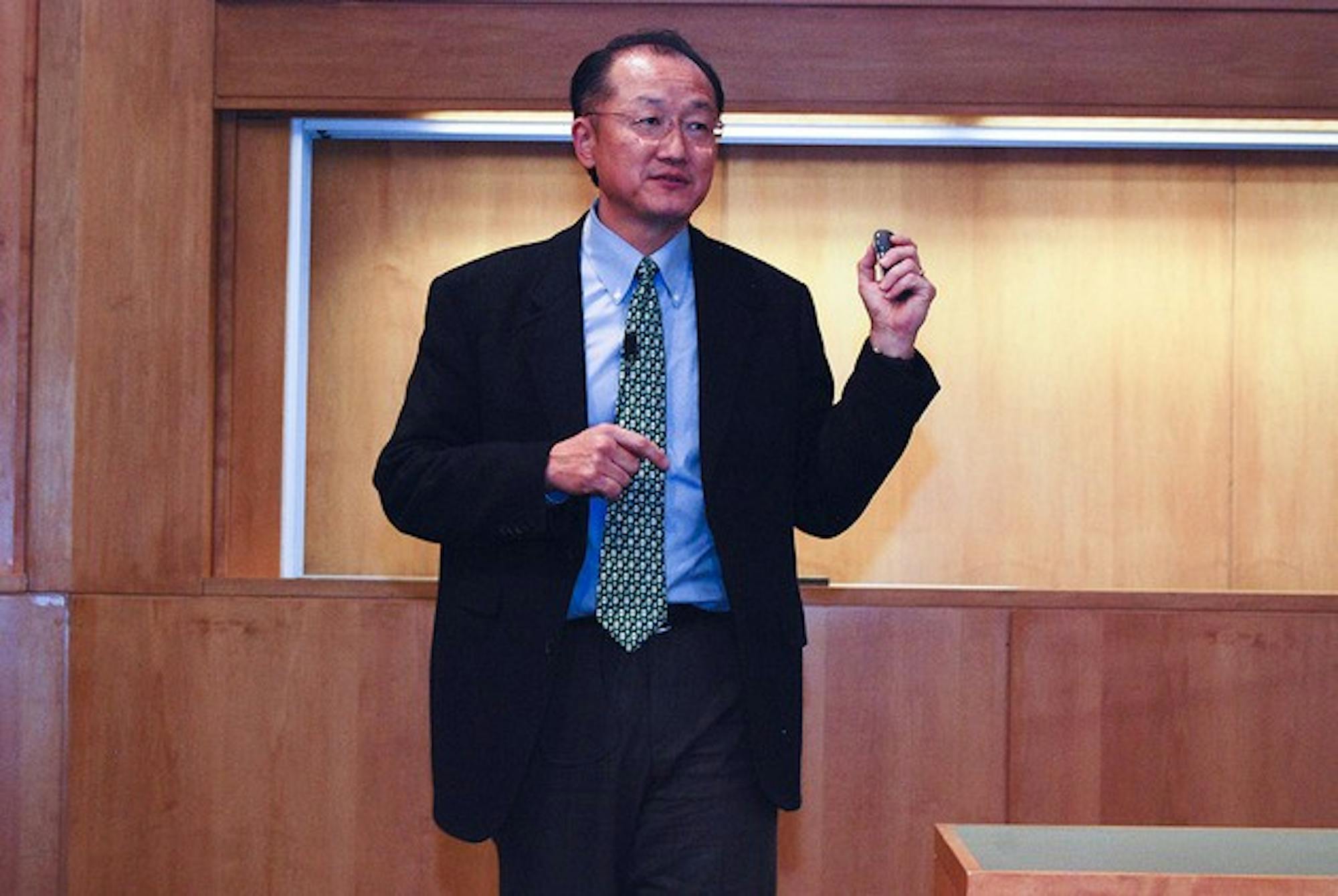In his interview with the Bank's executive directors, Kim said he would bring an outsider's perspective to the organization, according to the release.
"If I were entrusted with the responsibility of leading this institution, you would find in me someone who asks hard questions about the status quo and is not afraid to challenge existing orthodoxies," Kim said in the statement.
Kim said that his work as the co-founder of Partners in Health and the director of the HIV/AIDS division at the World Health Organization provided him with a global view on development and the tools necessary to assist struggling nations. He said he will not assume the presidency with an "ideological" approach.
"I will bring a global orientation to my leadership, helping to build consensus to advance the mission of the World Bank," Kim said in the statement.
Kim, who was the first Asian-American president of an Ivy League institution, would be the first non-white president of the World Bank.
The other candidates for the presidency focused on Kim's inexperience with finance in their interviews, according to news sources.
On Monday, Okonjo-Iweala said the process should be "merit-based" and that her experience as a managing director of the World Bank could help combat the Bank's "inertia."
"We need a Rolodex of experts that we can call on very fast," Okonjo-Iweala said in the interview, according to The Vanguard, a Nigerian newspaper. "The Bank needs to be fast in delivering knowledge. Middle-income countries are no longer willing to wait when they need a question answered."
Following his interview with the board on Tuesday, Ocampo questioned Kim's qualifications in an interview with The Washington Post but acknowledged that Kim would likely be elected.
"I don't know what my U.S. colleague thinks," Ocampo said. "Nobody knows."
Historically, interviews with the Bank's board have been a formality, according to Forbes blogger Maha Atal.
"But this year, with three strong candidates, and with many leading publications and figures in the economics community endorsing a non-U.S. candidate, the interviews could be key," Atal said in an email to The Dartmouth.
The interviews are largely inconsequential because the Bank's membership has to "line up" the votes in advance, economics professor Douglas Irwin said. The U.S. does not have an absolute majority of the votes, so Kim must gain the support of other countries, according to Irwin.
After being nominated for the World Bank presidency by U.S. President Barack Obama on March 23, Kim visited eight countries in 13 days to promote his candidacy and meet with various finance ministers.
Harvard School of Public Health professor and former World Bank advisor and country director John Briscoe said Kim's global tour underscored his inexperience in the realm of finance.
"You're not going to learn about finance by sitting for an hour with a finance minister, just as you're not going to be a surgeon after spending an hour in a hospital," Briscoe said.
New York University public service professor John Gershman said, however, that Kim is an "outstanding candidate" given his experience and devotion to improving the well-being of impoverished people, a goal "exactly aligned" with the mission of the World Bank.
"He's eminently qualified," Gershman said. "He's been a health professional working in some of the most difficult environments in the world."
The contested election for the position is a "positive step" for the Bank and likely reflects the Obama administration's desire for an "open debate" regarding the Bank's presidency, according to Gershman.
Briscoe said the election could challenge the historical legacy of U.S. control over the World Bank, European domination of the International Monetary Fund.
"Now it's a different world," Briscoe said. "China is very important, India is important and Brazil is important. Are they satisfied with a world run that way? Obviously not."
Irwin said that the "woefully outdated" tradition of U.S. hegemony at the Bank will eventually end.
Poor countries in need of development assistance also now have options outside of the Bank, influencing the Bank to rethink its traditions, according to Atal.
"That's put external pressure on the Bank to globalize its structure and make its policies more accountable to countries beyond the U.S. if [the Bank] is to remain relevant," she said.
Robert Zoellick, the 11th president of the World Bank, will step down in June. The next president will be selected by the end of April, with voting scheduled for April 16, before assuming the position in July.
Finance ministers from Japan, South Korea and Mexico have expressed support for Kim. The Economist, the Financial Times, the African Union and over 30 former World Bank directors have endorsed Okonjo-Iweala's candidacy. Ocampo has been endorsed by over 100 economists in a public petition.




